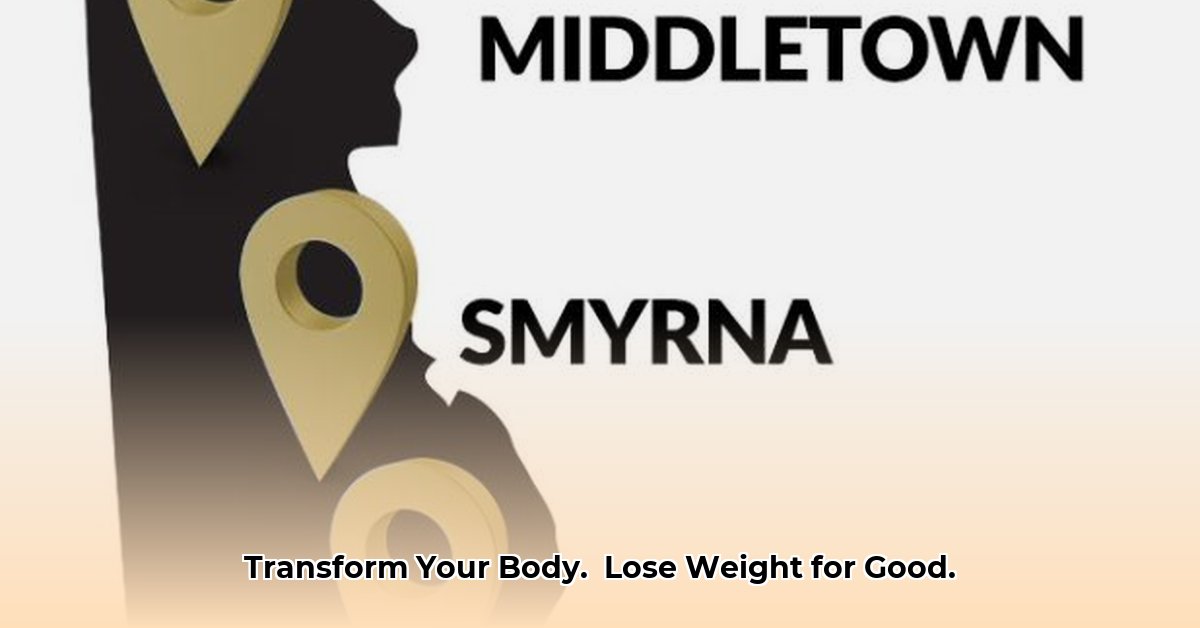
Thinking about losing weight? The Delaware Weight Loss Center (DWLC) promises lasting results, but is it all it's cracked up to be? This review objectively examines the program's components, available evidence, and potential risks to help you make an informed decision.
Understanding the Delaware Weight Loss Center Program
DWLC offers a multi-pronged approach to weight loss, combining personalized nutrition plans, medication (when medically appropriate), and behavioral therapy. The program aims for sustainable weight loss by addressing dietary habits, mental approaches to food, and, in some cases, using medication as a supplementary tool. However, the effectiveness of this combined strategy requires a closer look.
Program Components: A Detailed Look
The DWLC program differentiates itself by offering personalized plans tailored to individual needs and preferences, rather than a one-size-fits-all solution. Its key components include:
- Personalized Nutrition Plans: Registered dietitians create customized meal plans, emphasizing sustainable lifestyle changes over restrictive fad diets.
- Medication (When Necessary): Weight-loss medication is considered only when medically necessary and is presented as a supplementary tool rather than a central element of the program.
- Behavioral Therapy: This crucial element helps clients understand their relationship with food, identify triggers, and develop healthier coping mechanisms.
Evaluating the Evidence: Success Stories and Unanswered Questions
DWLC highlights impressive weight loss reported by many patients. However, these are self-reported results; we lack independent, scientifically verified studies confirming the program's long-term efficacy. While anecdotal evidence is compelling, the absence of verifiable data limits our ability to fully evaluate the program's success rate. Furthermore, the use of proprietary supplements raises concerns about transparency and the potential for unknown risks or side effects. Detailed ingredient information is lacking, making independent assessment impossible.
Strengths and Weaknesses: A Balanced Assessment
Strengths:
- Holistic Approach: The program's multi-faceted strategy addresses both physical and psychological aspects of weight loss.
- Personalized Plans: Customized plans cater to individual needs and preferences.
- Positive Patient Testimonials: Reported weight loss and positive experiences are frequently highlighted by clients.
Weaknesses:
- Lack of Independent Verification: The absence of independent, peer-reviewed studies to validate weight loss claims is a significant limitation.
- Proprietary Supplements: Limited transparency regarding supplement ingredients and their impact raises concerns about potential risks.
- Short-Term Data Focus: The information available primarily focuses on short-term results, lacking sufficient long-term data to assess sustainable weight maintenance.
Actionable Advice: Making Informed Choices
For Potential Patients:
- Independent Research: Investigate the program thoroughly, going beyond DWLC's marketing materials. Search for independent reviews and testimonials.
- Transparency Inquiry: Ask detailed questions about supplement ingredients, potential side effects, and the program's long-term success rate.
- Physician Consultation: Consult your doctor or another healthcare professional to discuss the program's suitability for your individual health circumstances.
For Healthcare Providers: Consider the program's lack of rigorous scientific support when advising patients. Independent verification of effectiveness is crucial before recommending any weight loss program.
For Regulatory Bodies: Monitor marketing claims to ensure accuracy and compliance with regulations. Encourage DWLC to provide comprehensive data supporting its claims.
Conclusion: A Cautious Recommendation
The Delaware Weight Loss Center offers a comprehensive program with reported successes. However, the lack of independent scientific evidence and transparency regarding proprietary supplements necessitate a cautious approach. Potential clients should conduct thorough research, consult with their healthcare provider, and weigh the program’s strengths and weaknesses carefully before enrollment. Further research and increased transparency from DWLC are essential for a more definitive evaluation of its effectiveness.